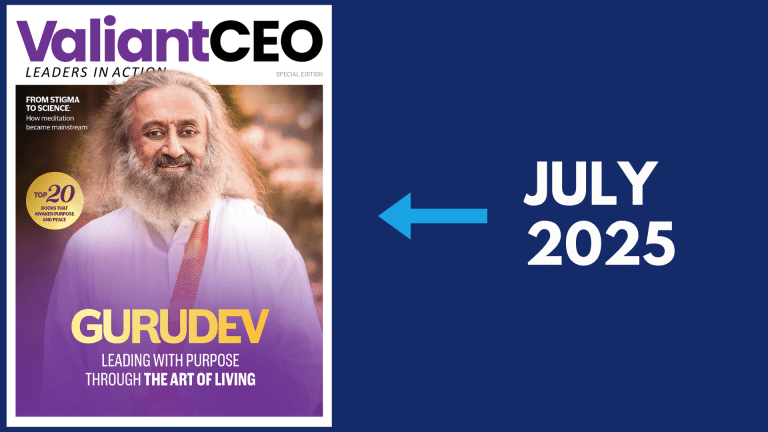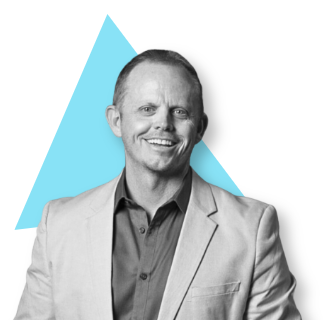Shaun is a Chartered Accountant and former KPMG Corporate Finance Senior Executive where he worked for over 9 years. After KPMG Shaun joined QBE and was a Senior member of the Corporate Development team. After QBE Shaun decided to pursue his mortgage broking business on a full-time basis
Company: Eden Emerald Mortgages
We are thrilled to have you join us today, welcome to ValiantCEO Magazine’s exclusive interview! Let’s start off with a little introduction. Tell our readers a bit about yourself and your company.
Shaun Bettman: I am the CEO and Chief Mortgage Broker at Eden Emerald Mortgages, based in Sydney. Before I launched the business full-time, I spent close to a decade at KPMG in corporate finance, then moved into a senior corporate development role at QBE. I worked on deals, market strategy, and high-level financial structuring across sectors. That background gave me a detailed understanding of how money moves, how institutions assess risk, and how to negotiate complex arrangements. I took that experience and redirected it into something more personal and outcome-driven.
Eden Emerald Mortgages is structured to make the home loan process clear, efficient, and honest. I work with over 40 lenders across Australia and handle a wide mix of loans from standard residential to refinances, investment loans, and more complex lending scenarios. Everything is personalised, and I do not charge fees to clients. I set it up this way because I want people to get advice that is built on financial logic, not product push. Whether someone is buying their first home or reshaping their portfolio, they should be able to make those decisions with confidence, not confusion. That is the standard I work to every day.
Can you take us back to the beginning – what inspired your startup, and what were those early days like?
Shaun Bettman: The idea for Eden Emerald Mortgages started while I was still working in corporate finance. I was advising on large transactions, reviewing capital structures, and dealing with complex financial models day in and day out. That work was technically sharp, but the outcomes often felt distant from anything tangible. Around that time, a close friend of mine asked for help with his home loan. He had been rejected by a few lenders and did not understand why. I walked him through the structure, reworked how it was presented, and got it approved with a lender that actually suited his situation. That moment stuck with me more than any corporate deal I had worked on.
I kept thinking about how many people were dealing with banks, brokers, or systems that made the process harder than it needed to be. There was too much jargon, too much product pushing, and not enough clarity. I knew I could do it differently. I wanted to build something where financial logic drove every recommendation, and where people could ask questions without being talked down to. That is how Eden Emerald Mortgages started. It was not a big campaign or business plan. It was one person needing help, and me knowing I could offer something better.
What was the biggest turning point or breakthrough that helped you scale from a small operation to a growing business?
Shaun Bettman: The biggest turning point came when I made the decision to stop relying on general referral traffic and built a structured system around Google Ads targeting tightly defined borrower profiles. In the early stages, most of my clients came through word of mouth. It was steady but unpredictable, and I could not forecast growth with any real confidence. I started testing paid search campaigns with a focus on specific loan types, like self-employed borrowers and refinancers above a certain loan size. I wrote all the ad copy myself, tied each campaign to a dedicated landing page, and tracked everything down to the enquiry source and conversion value.
Within six months, I brought in over 120 qualified leads, with approval rates sitting above 75 percent. That translated into more than $40 million in settled loans over a relatively short period. What changed was not just volume. It gave me the clarity to reinvest in tech, scale my lender integrations, and hire admin support to stay lean without bottlenecks. That was the point I stopped treating the business like a solo operation and started running it like a growth engine. Once that happened, the business moved from reactive to scalable. That shift made everything that followed possible.
How did you handle the toughest challenges during your growth phase – whether financial, operational, or personal?
Shaun Bettman: During the early growth phase, the toughest challenge I faced was managing volume without compromising accuracy. As the number of enquiries increased, so did the risk of missing details, delays in follow-ups, or miscommunications with lenders. I was still handling most of the process myself, from structuring deals to lodging applications and chasing approvals. There was a point where I had 27 active deals in play at once, and I was stretched across calls, compliance, rate comparisons, and document reviews with no margin for error.
The fix came when I built out a custom workflow using a mix of Trello and automated checklists tied to loan stages. Every client file had a visible pipeline from first contact through to settlement, with task deadlines and embedded templates. It was not expensive software or outsourced help. It was structure. That reduced the mental load, cut turnaround time, and allowed me to stay across details without drowning in them. I then brought on a full-time admin who worked inside that system, and together we kept everything moving cleanly.
Without that operational structure, the volume would have become chaos. The business did not need more leads at that point. It needed control. That lesson stuck with me through every growth step that followed.
As your company grew, how did your leadership style evolve to meet the demands of scaling?
Shaun Bettman: As the company grew, my leadership style shifted from doing everything myself to building systems that allowed others to take ownership. In the early days, I handled every client interaction, structured every loan, chased every document, and managed every lender conversation. That worked when volumes were low, but once we started handling dozens of active applications at once, it became clear that growth would stall unless I stepped back from the detail and focused on the bigger picture.
I began documenting processes, setting clear service standards, and building a structure where each team member had ownership over their part of the client journey. I moved from reacting to every task to thinking weeks ahead, setting priorities, and making sure people had the tools to do their work without constant input from me. That required me to trust others with things I used to manage tightly. I had to shift from solving everything myself to asking better questions and letting others bring solutions forward.
That change allowed the business to run smoothly at scale without diluting service quality. It also gave me space to think about long term improvements, not just day to day operations. Letting go of control in the right way was what made sustainable growth possible.
What advice would you give to entrepreneurs currently in the “garage” stage, dreaming of going global?
Shaun Bettman: If you are in the early stages and dreaming of going global, the best use of your time is fixing every crack in your process before chasing scale. I focused on the client journey from the first enquiry to settlement and did not move forward until I knew every part could run without me being involved at every step. That meant building out the right tech stack, tightening lender relationships, automating follow ups, and standardising how each loan was structured and presented. If that work is not done early, any attempt at growth just multiplies the pressure and exposes every weakness.
I tested everything in small, repeatable cycles. When a process broke down, I stopped and rewrote it. When it worked, I pushed it harder. Once the business could handle triple the volume without losing service quality, that is when I knew it was ready for more. It is tempting to jump ahead and chase visibility or expansion, but the risk is losing control before your business can carry the weight. Global scale starts with boring consistency. If you cannot deliver quality at volume locally, you are not ready to grow beyond that. Solve for clarity and control first. Everything else builds on that.






